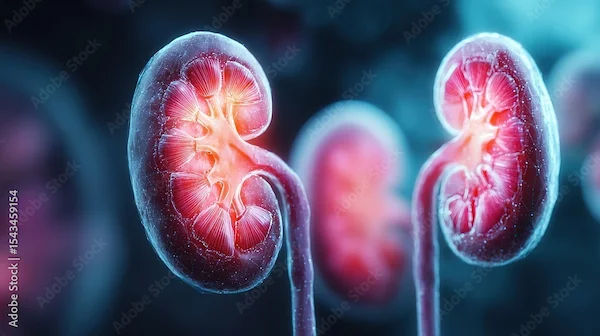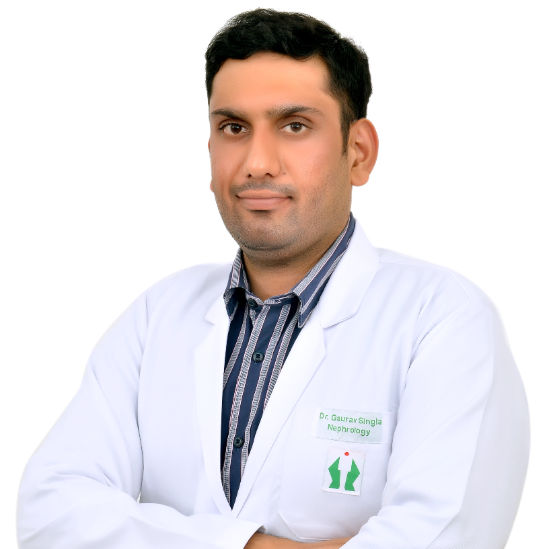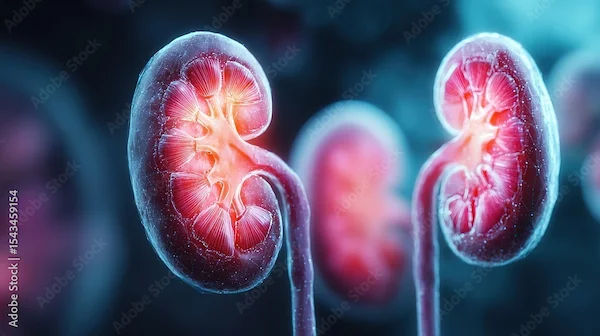Kidney Transplant Isolation Precautions
Understand essential isolation precautions after kidney transplant due to immunosuppression. Learn about hand hygiene, avoiding sick contacts, food safety, and travel guidelines to prevent infection.

Written by
Last updated on 17th Jul, 2025

Introduction
Undergoing a kidney transplant is a life changing event that brings hope and a new beginning. However, the journey doesn’t end with the surgery—posttransplant care is crucial, especially in the early stages when your immune system is weak. One of the most important aspects of recovery is following isolation precautions to prevent infections.
This guide will help you understand why isolation is necessary, how to protect yourself, and what steps you can take to stay healthy after your transplant.
Why Are Isolation Precautions Needed After a Kidney Transplant?
After a kidney transplant, your body recognizes the new organ as "foreign" and may try to reject it. To prevent this, you’ll be given immunosuppressant medications, which weaken your immune system. While these medicines help your body accept the new kidney, they also make you more vulnerable to infections.
Since infections can be serious (or even life-threatening) during this time, doctors recommend temporary isolation to minimize exposure to germs.
Key Isolation Precautions to Follow
The isolation precautions need to be followed are:
1. Avoid Crowded Places
Stay away from crowded areas like malls, markets, or public transport for at least 3-6 months after the transplant.
If you must go out, wear a well fitted mask (N95/KN95 recommended) and maintain distance from others.
2. Limit Visitors at Home
Only allow close family members who are healthy to visit.
Ask visitors to wash their hands before interacting with you.
Avoid contact with people who have colds, flu, or other infections.
3. Practice Strict Hygiene
Wash your hands frequently with soap and water for at least 20 seconds.
Use hand sanitizer (with at least 60% alcohol) when soap isn’t available.
Avoid touching your face, especially your eyes, nose, and mouth.
4. Stay Away from Sick People
If someone in your household is sick, keep a safe distance (at least 6 feet).
Do not share personal items like towels, utensils, or glasses.
5. Be Cautious with Pets
Avoid handling pet waste (ask someone else to clean litter boxes or cages).
Wash hands after petting animals.
Stay away from stray animals or reptiles, as they may carry infections.
6. Food Safety Measures
Eat only freshly cooked, wellwashed, and properly stored food.
Avoid raw or undercooked meat, fish, eggs, and unpasteurized dairy products.
Drink filtered or boiled water to prevent infections.
Consult Top Nephrologists
How Long Should You Follow Isolation Precautions?
The duration varies depending on your recovery and doctor’s advice, but generally:
First 3 months: Strict isolation (highest risk of infection).
3-6 months: Gradually resume some activities but remain cautious.
After 6 months: Your doctor may ease restrictions if your immune system stabilizes.
Always follow your transplant team’s specific recommendations.
Signs of Infection to Watch For
Even with precautions, infections can happen. Contact your doctor immediately if you notice:
Fever (100.4°F or higher)
Chills or sweating
Cough, sore throat, or difficulty breathing
Unusual fatigue
Pain or burning during urination
Redness, swelling, or pus around the surgical site
Tips for Emotional Wellbeing During Isolation
Isolation can feel lonely, but staying mentally healthy is just as important as physical recovery. Here’s how to cope:
Stay connected with loved ones through calls or video chats.
Engage in light activities like reading, puzzles, or gentle stretching.
Follow a routine to maintain a sense of normalcy.
Talk to a counselor if you feel anxious or depressed.
When to Seek Help?
If you experience any worrying symptoms, do not wait—contact your transplant team right away. Early treatment can prevent complications.
For followup consultations or tests, you can easily book an appointment with Apollo24|7 for expert guidance from nephrologists and transplant specialists.
Final Thoughts
Following isolation precautions after a kidney transplant may feel challenging, but it’s a temporary phase that ensures a smoother recovery. By taking these steps, you’re protecting your new kidney and giving yourself the best chance at a healthy, active life.
Stay patient, stay safe, and remember—your care team is always there to support you!
Consult Top Nephrologist
Consult Top Nephrologists

Dr. S Bipin Kumar
Nephrologist
13 Years • MBBS, MD General Medicine, DM, Nephrology
Rajamahendravaram
SG KIDNEY CARE, Rajamahendravaram

Dr. Luvdeep Dogra
Nephrologist
10 Years • MBBS, MD, DM (NEPHORLOGY)
Jaipur
Dr Dogras Health Clinic, Jaipur

Dr. Govardhan Gupta
Nephrologist
15 Years • MBBS, DNB General Medicine, DrNB Nephrology
Mumbai
Oscar Superspeciality Hospital, Mumbai

Dr. Gaurav Singla
Nephrologist
10 Years • MBBS, MD (General medicine), DM (Nephrology)
Amritsar
Dr. Gaurav Singla Kidney's Clinic, Amritsar
(125+ Patients)

Dr. Siddharth Herur
Nephrologist
4 Years • MBBS, MD General Medicine, DM Nephrology
Kurnool
Medicover hospital and Gurudatta poly clinic, Kurnool
Consult Top Nephrologist

Dr. S Bipin Kumar
Nephrologist
13 Years • MBBS, MD General Medicine, DM, Nephrology
Rajamahendravaram
SG KIDNEY CARE, Rajamahendravaram

Dr. Luvdeep Dogra
Nephrologist
10 Years • MBBS, MD, DM (NEPHORLOGY)
Jaipur
Dr Dogras Health Clinic, Jaipur

Dr. Govardhan Gupta
Nephrologist
15 Years • MBBS, DNB General Medicine, DrNB Nephrology
Mumbai
Oscar Superspeciality Hospital, Mumbai

Dr. Gaurav Singla
Nephrologist
10 Years • MBBS, MD (General medicine), DM (Nephrology)
Amritsar
Dr. Gaurav Singla Kidney's Clinic, Amritsar
(125+ Patients)

Dr. Siddharth Herur
Nephrologist
4 Years • MBBS, MD General Medicine, DM Nephrology
Kurnool
Medicover hospital and Gurudatta poly clinic, Kurnool

_1.webp)
_3.webp)
_10.webp)
_6.webp)